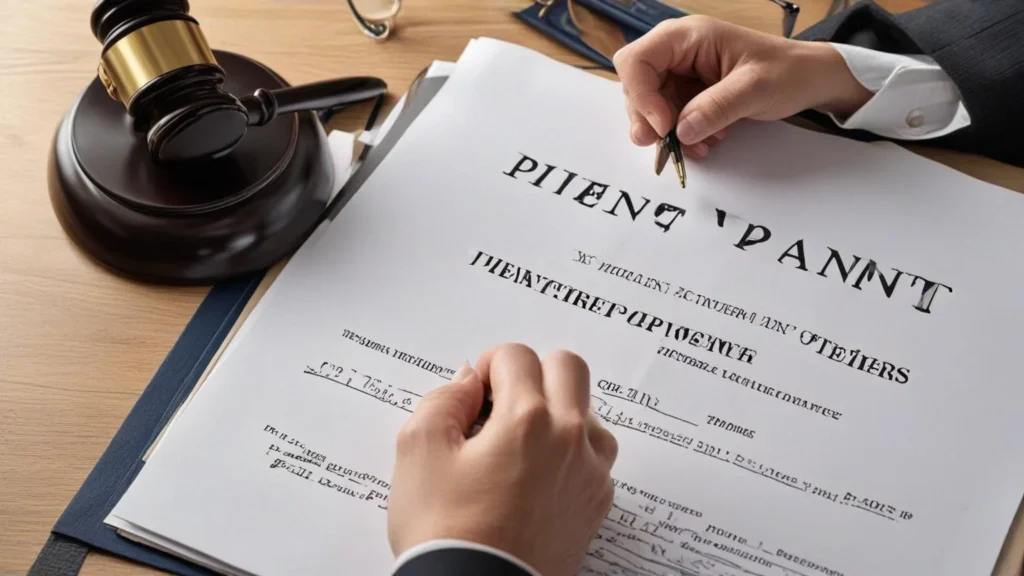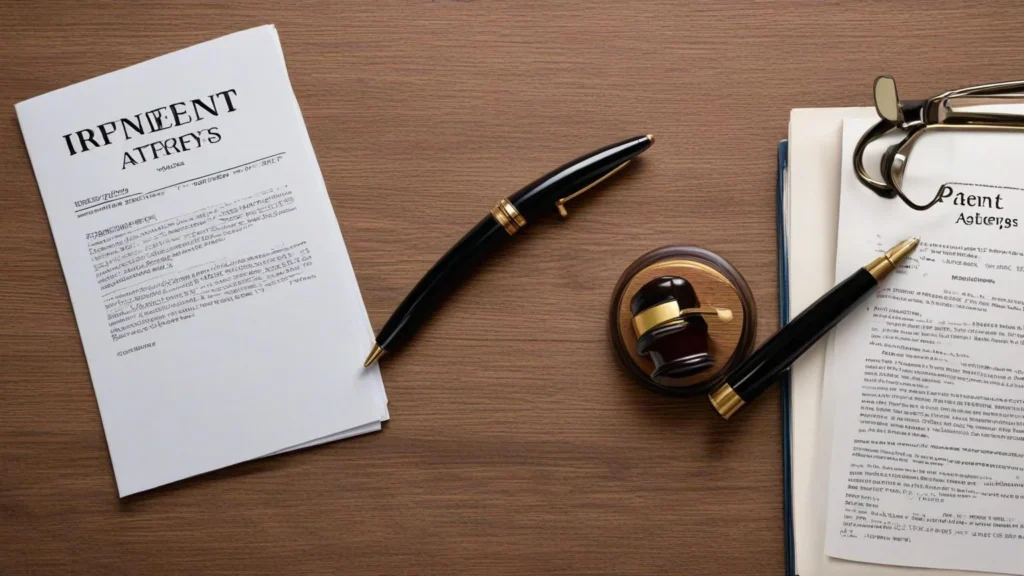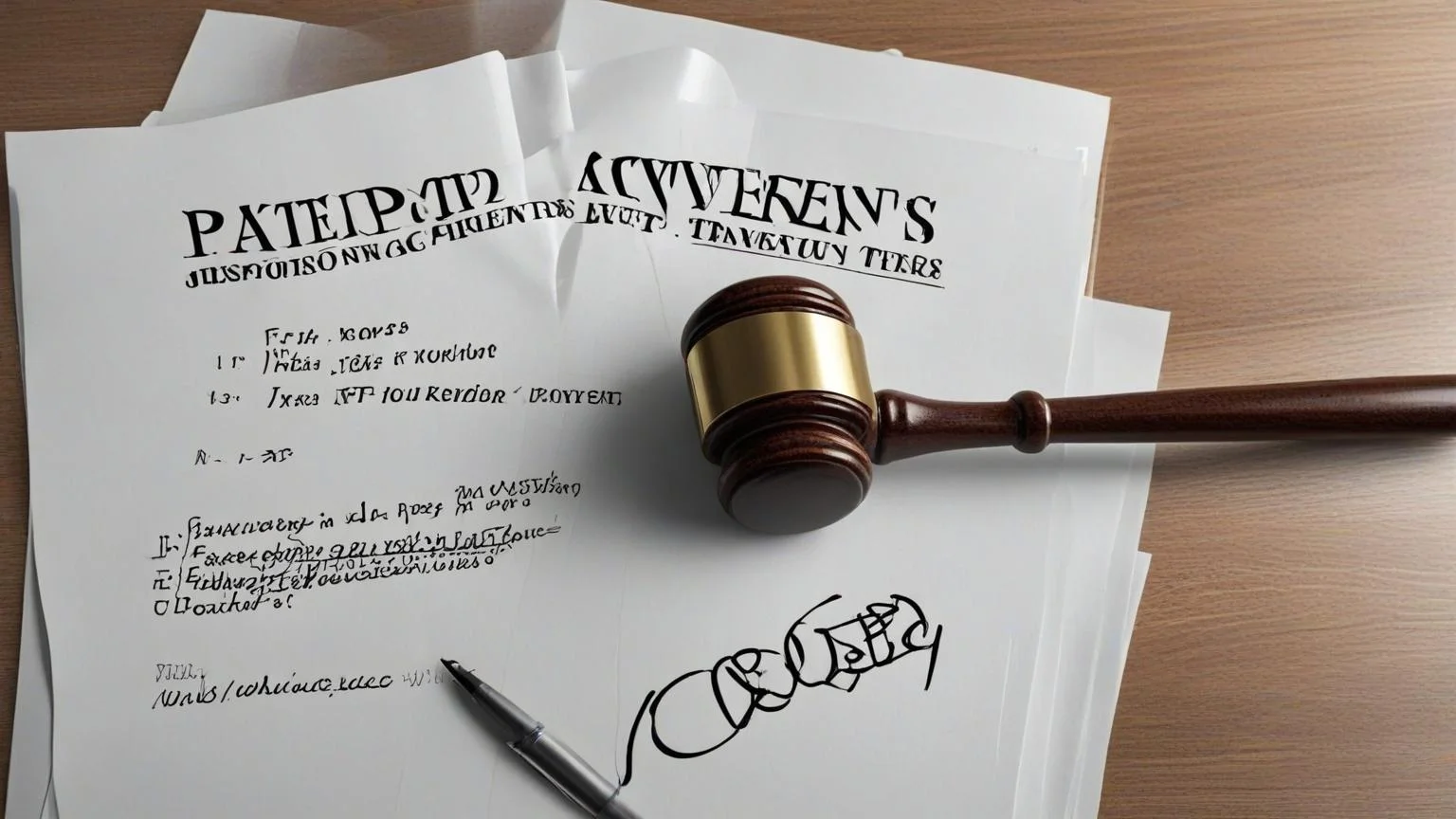Understanding the roles of different types of legal professionals can be daunting, especially when it comes to complex fields like intellectual property (IP) law. If you’re considering seeking legal help for intellectual property matters, you might wonder about the differences between a patent attorney and an IP attorney. In this comprehensive guide, we will delve into these differences, addressing key questions and offering insights to help you make informed decisions.
What is an IP Attorney?
An IP attorney, also known as an intellectual property attorney, provides legal services related to all forms of intellectual property, not just patents. IP attorneys offer a broader range of services that include trademarks, copyrights, and trade secrets, in addition to patents.
Key Responsibilities of an IP Attorney
- Trademark Registration:
- Assisting clients with the registration and protection of trademarks, which can include logos, brand names, and slogans.
- Assisting clients with the registration and protection of trademarks, which can include logos, brand names, and slogans.
- Copyright Protection:
- Helping clients protect original works of authorship, such as books, music, and software.
- Helping clients protect original works of authorship, such as books, music, and software.
- Trade Secret Management:
- Advising on the protection of confidential business information that gives a competitive edge.
- Advising on the protection of confidential business information that gives a competitive edge.
- IP Disputes and Enforcement:
- Handling disputes related to trademarks, copyrights, and trade secrets, including litigation and negotiation.
Qualifications for an IP Attorney

Becoming an IP (Intellectual Property) Attorney requires a combination of education, experience, and specific legal qualifications. This section explores the detailed requirements and qualifications needed to pursue a career as an IP Attorney.
Educational Requirements
Obtain a Bachelor’s Degree
The first step in becoming an IP Attorney is to earn a bachelor’s degree from an accredited institution. This degree can be in any field, but certain majors may be particularly beneficial:
- Law: Although not mandatory, a pre-law degree can provide foundational knowledge in legal studies.
- Technical Fields: Degrees in science, engineering, or technology are advantageous, especially for those looking to specialize in patent law, which requires a technical background.
- Business: A degree in business administration can be beneficial for those interested in trademark and copyright law.
Example Degrees:
- Bachelor of Science in Engineering
- Bachelor of Arts in Business Administration
- Bachelor of Science in Biology
- Bachelor of Arts in Political Science
Complete a Juris Doctor (JD) Degree
After obtaining a bachelor’s degree, aspiring IP Attorneys must earn a Juris Doctor (JD) degree from a law school accredited by the American Bar Association (ABA). The JD program typically takes three years to complete and includes courses in various areas of law.
Key Courses for IP Attorneys:
- Intellectual Property Law
- Patent Law
- Trademark Law
- Copyright Law
- Trade Secrets Law
- Contract Law
- Legal Research and Writing
Top Law Schools for IP Law:
- Harvard Law School
- Stanford Law School
- University of California, Berkeley School of Law
- New York University School of Law
Pass the Bar Examination
Upon completing the JD program, candidates must pass the bar examination in the state where they wish to practice law. The bar exam tests knowledge of state-specific and general legal principles.
- State Bar Exams: Each state administers its own bar exam, which may include the Multistate Bar Examination (MBE), state-specific essays, and performance tests.
- Bar Exam Preparation: Most candidates prepare through intensive study programs and review courses.
Specialized Knowledge and Skills
Technical Expertise
While not always required, having a technical background can be highly beneficial for IP Attorneys, especially those focusing on patents. This expertise helps in understanding complex inventions and technologies.
Ways to Gain Technical Expertise:
- Advanced Degrees: Pursuing a Master’s or PhD in a technical field.
- Work Experience: Gaining experience in engineering, science, or technology industries.
Relevant Technical Fields:
- Engineering
- Computer Science
- Biotechnology
- Chemistry
Advanced IP Law Courses and Certifications
Specializing in intellectual property law often involves further education and certifications beyond the basic JD degree.
Advanced Courses and Certifications:
- Certification in Intellectual Property Law: Offered by organizations such as the International Trademark Association (INTA) or the American Bar Association.
- Advanced IP Law Courses: Specialized courses in patent prosecution, IP litigation, and international IP law.
Experience in Intellectual Property Law
Gaining practical experience in IP law is essential for becoming a successful IP Attorney. This experience can be obtained through:
- Internships: Working at law firms, corporate legal departments, or governmental agencies.
- Clerkships: Serving as a clerk for judges or senior attorneys in IP law.
- Legal Practice: Working in roles related to patent prosecution, trademark registration, or IP litigation.
Examples of Experience Opportunities:
- Legal Internships: Interning at firms specializing in IP law.
- Pro Bono Work: Offering legal services for IP-related cases through nonprofit organizations.
- Law Firm Clerkships: Working as a clerk for a law firm with a focus on IP issues.
Professional Skills
Analytical Skills
IP Attorneys must possess strong analytical skills to evaluate complex legal issues and develop effective legal strategies.
Examples of Analytical Skills:
- Legal Research: Conducting thorough research to support legal arguments.
- Problem-Solving: Developing innovative solutions for IP disputes and challenges.
Communication Skills
Effective communication is crucial for IP Attorneys to interact with clients, colleagues, and legal professionals.
Key Communication Skills:
- Written Communication: Drafting clear and precise legal documents, including patent applications and legal briefs.
- Oral Communication: Presenting arguments in court and negotiating with other parties.
Negotiation Skills
Negotiation skills are essential for IP Attorneys to reach settlements in disputes and manage client relationships.
Examples of Negotiation:
- Settlement Agreements: Negotiating terms of settlement for IP infringement cases.
- Licensing Agreements: Drafting and negotiating terms for IP licenses and collaborations.
Legal Licenses and Memberships
Membership in Professional Associations
Joining professional organizations can provide ongoing education and networking opportunities.
Important Associations:
- American Intellectual Property Law Association (AIPLA): Offers resources and professional development for IP Attorneys.
- International Trademark Association (INTA): Focuses on trademark law and offers resources for legal professionals.
Continuing Legal Education (CLE)
Continuing Legal Education (CLE) is required for maintaining a law license and staying updated on legal developments.
Examples of CLE Opportunities:
- Workshops and Seminars: Attending events focused on recent developments in IP law.
- Online Courses: Enrolling in online CLE courses for flexibility and convenience.
Career Advancement Opportunities
Becoming a Partner at a Law Firm
Experienced IP Attorneys may advance to partnership positions at law firms, where they take on leadership roles and manage significant cases.
Academic and Research Positions
Some IP Attorneys may pursue careers in academia or research, teaching law or contributing to scholarly research in IP law.
Is an IP Lawyer the Same as a Patent Lawyer?

No, an IP lawyer is not the same as a patent lawyer. While both professions deal with intellectual property, their scopes and specializations are different.
- Patent Lawyer (Patent Attorney):
- Focuses specifically on patents and must have a technical background and pass the Patent Bar Exam.
- Focuses specifically on patents and must have a technical background and pass the Patent Bar Exam.
- IP Lawyer (Intellectual Property Attorney):
- Handles a broader range of IP issues, including trademarks, copyrights, and trade secrets, and does not necessarily require a technical background.
What is the Difference Between Patent Law and IP Law?
Patent law and IP law are subsets of the broader field of intellectual property law.
- Patent Law:
- Focus: Protects new inventions and innovations.
- Scope: Covers the process of obtaining patents, patent prosecution, and patent litigation.
- Focus: Protects new inventions and innovations.
- IP Law:
- Focus: Covers all types of intellectual property including patents, trademarks, copyrights, and trade secrets.
- Scope: Encompasses a wide range of legal issues related to the creation, protection, and enforcement of intellectual property rights.
- Focus: Covers all types of intellectual property including patents, trademarks, copyrights, and trade secrets.
What is Another Name for Patent Attorney?
Another term for a patent attorney is patent lawyer. Both terms refer to professionals who specialize in patent law, though “patent attorney” is the more formal term used in legal contexts.
Choosing Between a Patent Attorney and an IP Attorney
When deciding whether to work with a patent attorney or an IP attorney, consider the specific needs of your case or business:
| Need | Patent Attorney | IP Attorney |
|---|---|---|
| Patent Applications | Yes | No |
| Trademark Registration | No | Yes |
| Copyright Protection | No | Yes |
| Trade Secret Management | No | Yes |
| Patent Litigation | Yes | No |
| Broader IP Issues | No | Yes |
Common Misconceptions About Patent Attorneys and IP Attorneys
Misconception 1: “Patent Attorneys Can Handle All IP Matters.”
Fact: Patent attorneys are experts in patent law but are not necessarily equipped to handle all types of intellectual property issues. IP attorneys have a broader scope of practice, covering patents, trademarks, copyrights, and trade secrets.
Misconception 2: “IP Attorneys Don’t Need Technical Knowledge.”
Fact: While IP attorneys generally have a broader focus, they often have expertise in the specific fields they handle, though not always the technical background required for patent attorneys.
Misconception 3: “All IP Attorneys Are Patent Attorneys.”
Fact: While all patent attorneys are IP attorneys, not all IP attorneys are patent attorneys. IP attorneys can specialize in other areas like trademarks or copyrights.
How to Choose the Right Attorney for Your Needs
Here are some tips for selecting the right professional for your intellectual property needs:
- Identify Your Needs:
- Determine if you need help with patents, trademarks, copyrights, or a combination of these services.
- Determine if you need help with patents, trademarks, copyrights, or a combination of these services.
- Check Qualifications:
- For patent-related matters, ensure the attorney has passed the Patent Bar Exam.
- For broader IP issues, look for an attorney with relevant experience in the specific area you need.
- For patent-related matters, ensure the attorney has passed the Patent Bar Exam.
- Evaluate Experience:
- Look for attorneys with a track record of success in your particular type of intellectual property issue.
- Look for attorneys with a track record of success in your particular type of intellectual property issue.
- Discuss Fees and Services:
- Understand the attorney’s fee structure and what services are included.
Summary Table
| Aspect | Patent Attorney | IP Attorney |
|---|---|---|
| Specialization | Patent Law | Broad IP Law |
| Scope of Practice | Patents | Patents, Trademarks, Copyrights, Trade Secrets |
| Technical Background Required | Yes | No |
| Key Responsibilities | Patent applications, prosecution, litigation | Trademarks, copyrights, trade secrets, IP disputes |
| Common Terms | Patent Lawyer | Intellectual Property Lawyer |
Conclusion
Understanding the difference between patent attorneys and IP attorneys is crucial for making informed decisions about your intellectual property needs. Patent attorneys specialize in patents and must have a technical background, while IP attorneys cover a broader range of IP issues and may not require a technical background.
Whether you need help with patent applications, trademark registrations, or copyright protections, selecting the right professional for your specific needs can significantly impact the success of your intellectual property endeavors.

